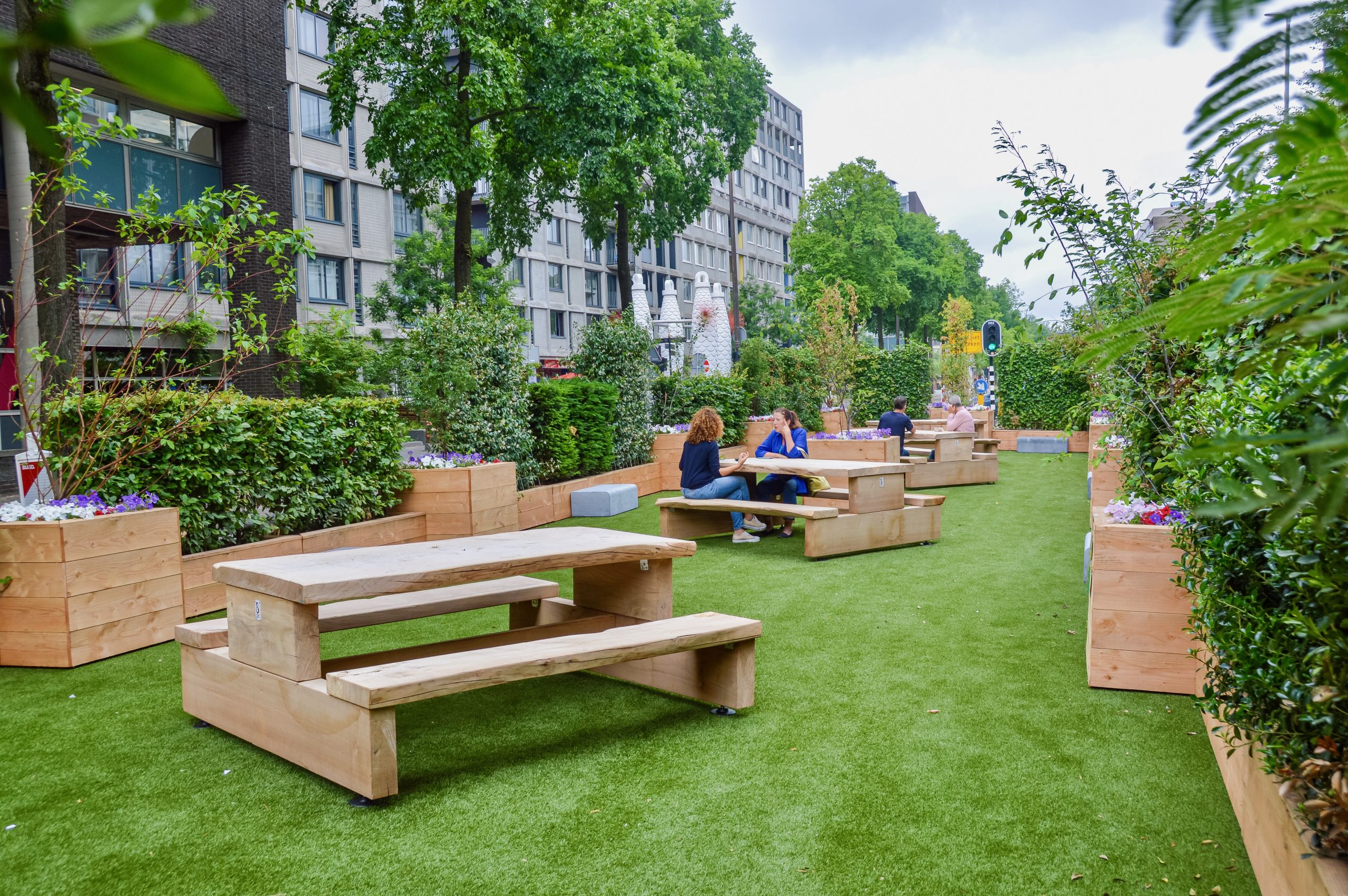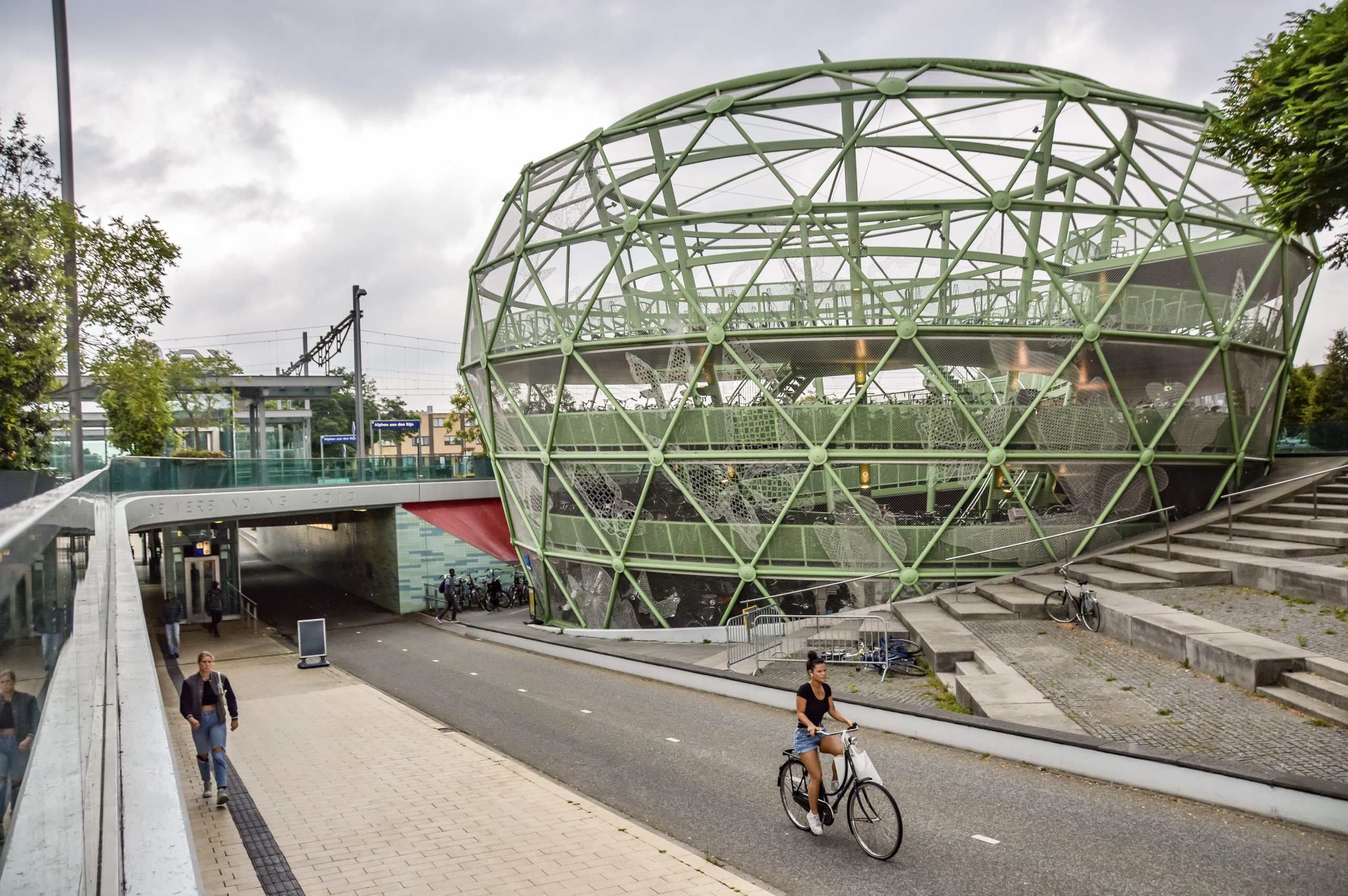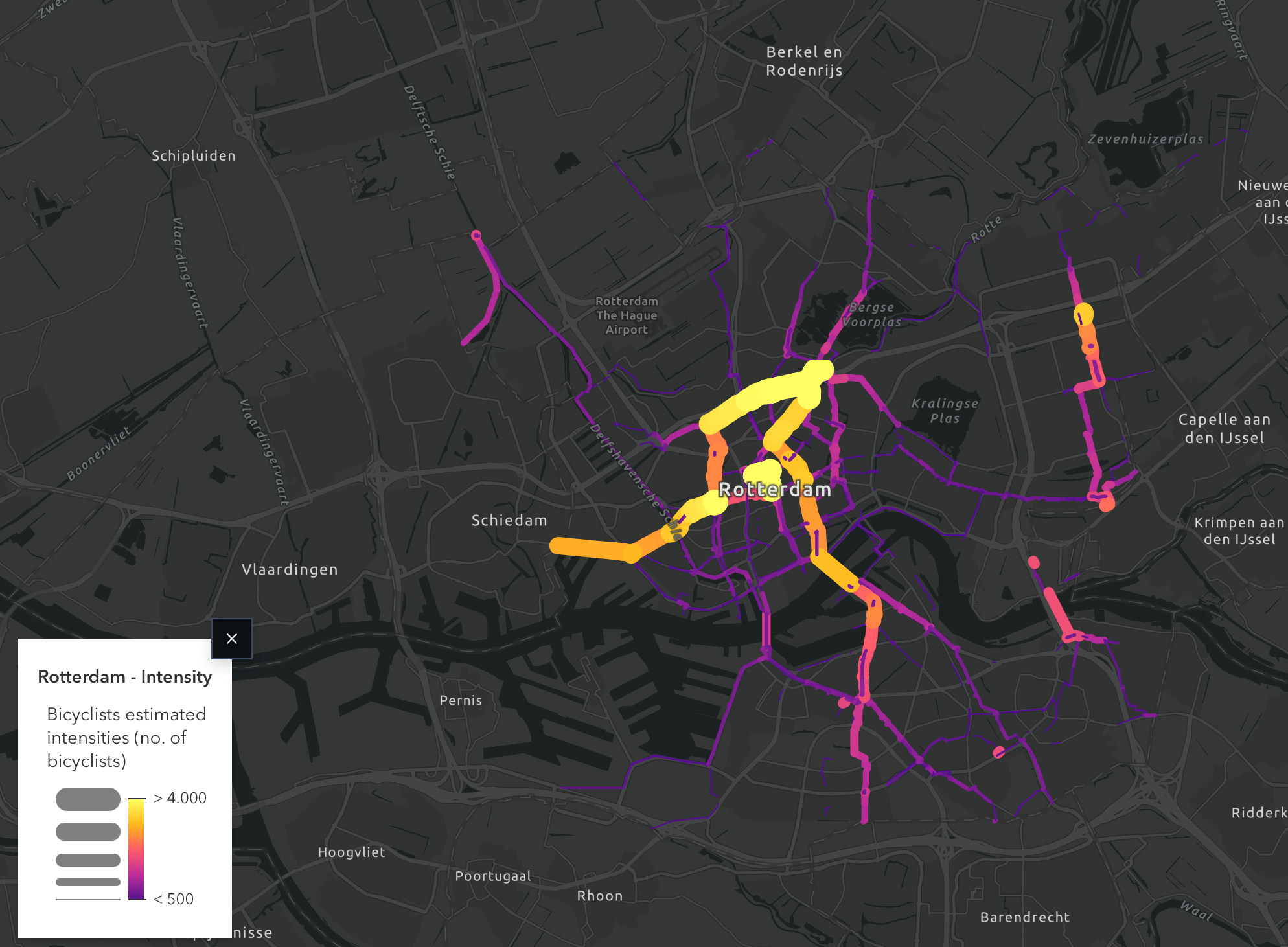Fewer Cars and More Green on Amsterdam’s Weesperstraat
14 July 2023On June 12, 2023, the Municipality of Amsterdam initiated a six-week pilot project—known as the ‘Knip Weesperstraat’—to investigate the impact of temporarily closing the Weesperstraat to through motor traffic. Part of an abandoned 1972 plan to build a motorway into the heart of the Amsterdam, and one of the busiest throughfares in the eastern inner city, more than 1,500 cars use the Weesperstraat each hour during peak times.
By restricting this corridor to local motor traffic from 6:00 to 23:00 each day—using traffic cones, flower boxes, and concrete barriers—the Municipality will analyse the effects of this measure on traffic volumes, road safety, and quality of life on the street and the immediate vicinity. A “pocket park” has been built in the central median with space for seating and gathering; programmed with musical acts, poetry readings, and talks on a variety of topics.
At night, all barriers are open to motor traffic because it is less busy. Emergency services and public transport are also able to pass through. When this trial is over, the results—including consultation with a focus group of 3,000 local residents and business owners—will be disseminated and reported to council, who will then vote on whether to make it permanent.
To view a photo gallery of the Knip Weesperstraat, click here.
To take a video tour of the Knip Weesperstraat, click here.


